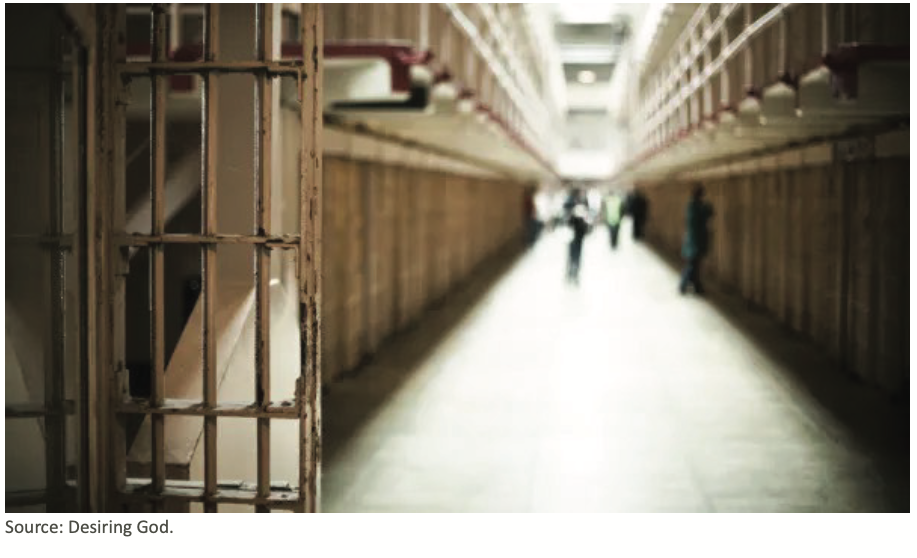
Religious groups and volunteers, particularly evangelicals, are becoming a dominant influence in prisons thanks to a new model of incarceration that relies on outsourcing rehabilitation programming to faith groups, write Michael Hallett (North Florida State University) and Byron Johnson (Baylor University) in the online magazine Public Discourse (October 25). Facing unprecedented levels of violence and mental illness among inmates and a lack of sufficient funding to deal with such problems, maximum-security prison administrators have been forced to look for alternative solutions. New public-private partnerships between prison wardens, religious educators, and faith-motivated volunteers are now operating in 27 states and over 70 maximum-security prisons nationwide. Hallet and Johnson compare this prison reform movement to earlier Quaker efforts on this issue given the large private investment backed up by powerful legislative advocates.

Hallett and Johnson, who recently co-authored the book, The Restorative Prison (with Sun Joon Jang), conducted research in America’s largest maximum-security prisons to find that many of these religious programs are largely interracial and thus strongly ecumenical, with “cross- fertilization of worship [becoming] a normalized practice.” Religion in prison is marked by a “relaxed and non-hierarchical openness to various forms of religious practice in a doctrinally neutral space…. Steeped in the twelve-step theologies of addiction recovery programs…many inmates adopt surprisingly tolerant views concerning the religious doctrines of their peers. As a result, practitioners are more relaxed about doctrinal strictures and much less attentive to ‘culture war’ battles playing out beyond the walls of their institution.” Evangelical ministries clearly lead in the new prison reform movement, with a presence far beyond what the evangelical proportion of the population would suggest, but there has been little acknowledgement of this reality, Hallett and Johnson write. They add that the key to evangelicals’ effectiveness in prisons is their model of the “wounded healer,” which uses peer-based rehabilitative programming, where, for instance, former addicts will work with addicts in prison.
(Public Discourse, https://www.thepublicdiscourse.com/2021/10/78662/)